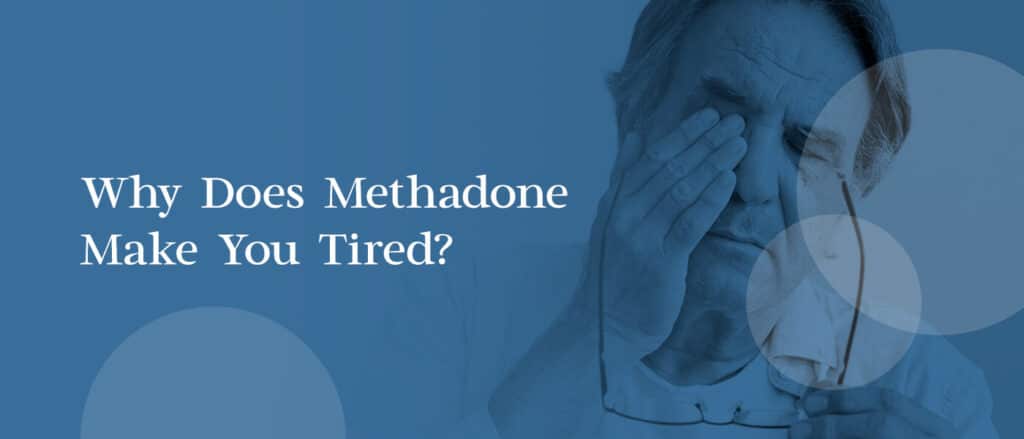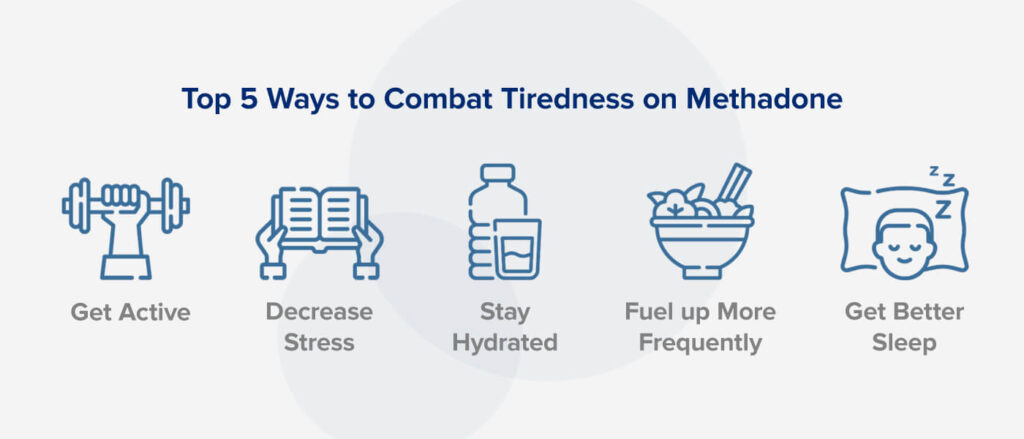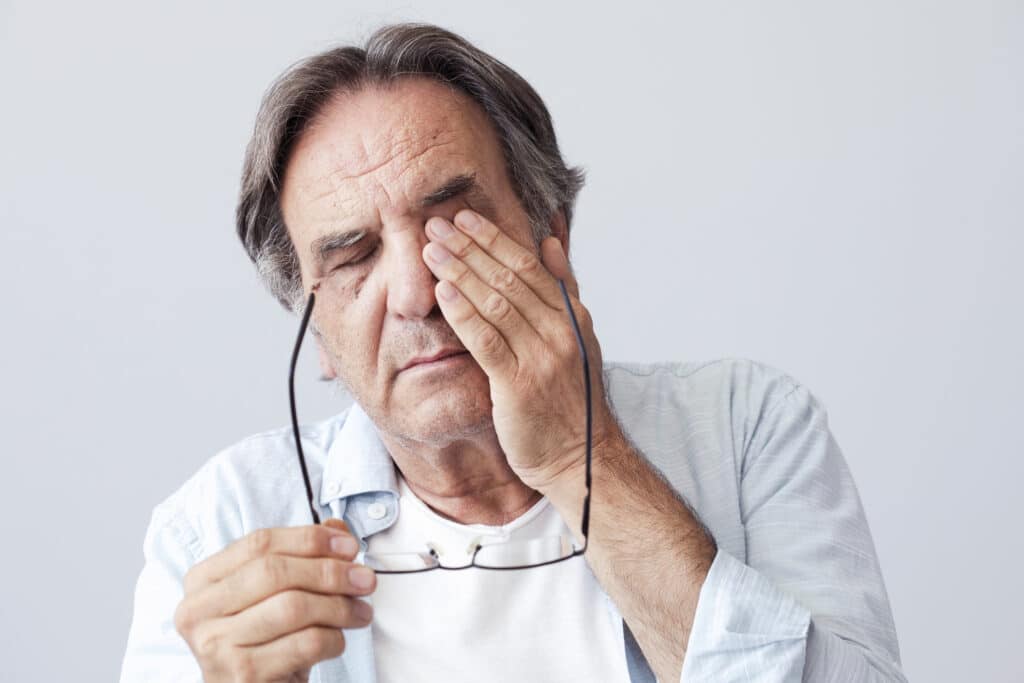
Methadone has been the gold standard of medication-assisted treatment for more than 50 years due to its success in helping people overcome opioid use disorder. While methadone attaches to the brain’s opioid receptors to curb cravings and eliminate severe withdrawal symptoms, it can bring mild side effects like tiredness. If you feel sleepy after methadone treatment, you’re not alone.
This article will explain the science behind methadone causing drowsiness, why many people feel tired while on methadone and how to overcome fatigue from methadone. Keep reading to learn more about tiredness as a side effect of methadone and managing your energy levels.
Why Does Methadone Make You Tired All Day?
Drowsiness is one of methadone’s characteristic side effects. Extreme fatigue is common after taking methadone because the medication stimulates changes in brain chemistry, which can interfere with sleep regulation. While fewer withdrawal symptoms are methadone’s positive effect of interacting with the brain’s opioid receptors, any shift in brain chemistry can disrupt regular sleep patterns.
Using methadone can alter the amount and quality of sleep to be shorter and less efficient. This side effect is not unusual, considering acute use and high doses of any opioid affect alertness and cognitive function. Even a single opioid use can alter a healthy adult’s sleep architecture.
In particular, insomnia is prevalent among those undergoing methadone treatment. People who experience insomnia after methadone use self-report difficulties falling asleep or remaining asleep, along with poor sleep quality. Sleep deprivation and increased wakefulness can impair the brain’s regular functions by draining its glycogen stores, resulting in lower energy levels.
Sleep studies have found sleep deprivation produces notable challenges, including increased daytime sleepiness and some difficulties completing everyday tasks. Disrupted sleep does not provide sufficient restorative qualities. Because sleep deprivation plays such a significant role in daytime sleepiness and reduced function, sleep insufficiency from methadone treatment may lead to pervasive feelings of tiredness and lethargy.
Is Being Tired From Methadone Normal?
Feeling fatigued after methadone treatment is typical, considering how this medication can interfere with the body’s regular sleep patterns. Anytime someone has a restless night, their body experiences increased metabolic demands to stay awake longer. These demands deplete the body’s energy, making them feel tired throughout the following day.
Along with tiredness, sleep pattern abnormalities may lead to slower reaction times and a lack of alertness. Often, sleep deprivation also impacts cognitive processing, which means people taking methadone may see an increase in forgetfulness and confusion in addition to their fatigue.
Furthermore, a lack of sleep may lead to these methadone side effects:
- Mood swings
- Headaches
- Digestive issues
- Weight gain
- Cold or flu-like symptoms
While these side effects are typical, people using methadone to overcome opioid misuse should talk to their doctors about modifying their treatment if any of these symptoms become difficult to manage. Adjusting the dosage may make drowsiness less severe.
Methadone’s effects depend on the duration of treatment and how much progress a client has made. Those who are still within the first year of their treatment plan may experience more sleep deprivation symptoms than those who have been undergoing methadone treatments for longer because their bodies have not yet fully adjusted to methadone treatment.
Once a methadone treatment plan is underway, it may take a few treatment sessions to acclimate. During this time, sleep disturbances and sleep deprivation may significantly impact a client’s sleeping habits as their bodies adapt to the physiological changes that occur during methadone treatment.
However, data indicates that people who have been receiving methadone treatment over extended periods are stable and generally able to withstand the effects of daytime tiredness. In this way, methadone remains an effective and affordable means for treating an opioid use disorder.

Top 5 Ways to Combat Tiredness on Methadone
If you tend to feel sleepy on methadone treatment, try these five simple strategies for overcoming tiredness.
1. Get Active
While exercise might be the last thing you feel like doing if you’re exhausted, getting active is a reliable cure for feelings of sleepiness. Research shows that regular exercise can minimize the symptoms of fatigue and improve energy levels. Working out boosts your energy levels by releasing endorphins that elevate your overall health and sense of well-being.
Routine exercise also boosts your lung, heart and muscle efficiency, which gives you more energy for other activities throughout the day. Tiring yourself out with physical activity during the day can lead to higher-quality sleep at night.
2. Decrease Stress
Reducing stress is crucial for fending off fatigue because stress can drain your body of the mental and physical energy it needs to get through the day. Stress hormones can adversely affect your sleep patterns. To reduce your stress, do whatever helps you relax and unwind, whether you enjoy pampering yourself with a spa day or curling up with a good book.
If you’re looking for effective relaxation techniques, try mindfulness exercises like yoga, deep breathing or meditation. Yoga, in particular, is a beneficial practice for promoting your sense of well-being and replenishing your energy supplies.
3. Stay Hydrated
Drinking enough water is crucial for keeping your body running at its optimal capacity. Specifically, studies show that increasing your water intake can positively affect on your mood and energy levels. Staying hydrated by drinking enough fluids each day can help you feel calmer and happier in general.
On the other hand, dehydration can lead to low energy levels and fatigue when doing everyday tasks. Not getting enough water can also negatively impact your sleep by drying out your nasal passages and mouth, leading to hoarseness, snoring and leg cramps.
4. Fuel up More Frequently
Because food nourishes the body, eating smaller meals more frequently can help keep your energy levels high. As opposed to fewer, larger meals that often come with energy spikes and crashes, smaller meals spread throughout the day will keep your blood sugar levels stable and promote a healthier lifestyle.
When having your smaller meals, try to include whole grains and other complex carbohydrates on your plate. Complex carbohydrates will take your body longer to digest than refined carbohydrates, which will help prevent fluctuations of blood sugar and energy dips.
5. Get Better Sleep
Of course, getting better sleep is an excellent way to keep daytime tiredness at bay. You can achieve higher-quality sleep and less daytime fatigue by getting to bed early to ensure a full night’s sleep. If you want to fall asleep more quickly, try to avoid looking at a screen while in bed, as doing so can suppress melatonin and disrupt your sleep cycle.
For those who don’t quite get enough sleep during the night, taking a nap can give you the midday energy boost you need to overcome fatigue. A daytime nap can improve your alertness and motor performance so you can keep functioning at your best. However, keep your nap brief, so you can still fall asleep easily at night.
Contact BAART If You Are Seeking Treatment
If you are considering medication-assisted treatment for opioid addiction, contact BAART Programs. At BAART Programs, we offer individualized and comprehensive treatment plans that include evidence-based medications and counseling to more effectively help people on their road to recovery.
Our caring medical team has specific training in administering methadone, which addresses the physical withdrawal symptoms of addiction to help you maintain your focus on wellness. We keep methadone safely regulated, so our clients can continue experiencing positive results.
To learn more about methadone and how BAART Programs can help you overcome opioid addiction, find the treatment location nearest you or reach out to us online.




